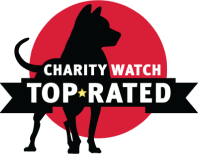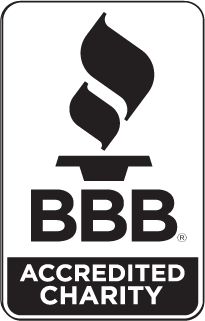‘Not a Checkbox’: Our Focus on Diversity, Equity, and Inclusion
Project HOPE has made a long-term commitment to fostering a culture of diversity, equity, and inclusion. Learn more in this Q&A with Lesly Beatley, Project HOPE Americas Legal & Governance Specialist and DEI Council Co-Chair.

Recent events have thrown into sharp relief how we must grow into a more diverse, equitable, and inclusive world. We fight for these tenets every day, but our success will only be possible if we live them as an organization.
In 2020, Project HOPE established a Diversity, Equity, and Inclusion Council to make sure these principles are integrated into all of our work.
Why is DEI important for a global health organization, what are the council’s goals, and what steps have already been taken? Read on to learn more from Lesly Beatley, Project HOPE DEI Council Co-Chair.
How was the DEI Council formed? What was the impetus?
The events of 2020, from the murder of George Floyd to the devastating impact of COVID-19 on communities of color, forced everyone to take notice of the need to fight for greater diversity, equity, and inclusion in all fabrics of society. The DEI Council was formed to bring intention and a structured approach to help us achieve diversity, equity, and inclusion and ensure these efforts can be scaled and maximized across Project HOPE.
Why is DEI important for a global health organization?
Diversity, equity, and inclusion should be at the core of everything we do. At Project HOPE, we work across many countries and engage with people from diverse communities. In order to impact global health and development, it is important for us to work with great respect and consideration for other cultures and strengthen inclusivity to optimize collaboration.
DEI is essential to achieve a just and sustainable world, where all people have equal access to health care. Our global health and humanitarian aid community is striving to decolonize how aid is approached and delivered, deconstructing past legacies that essentially impeded rather than honored culture. We are putting local health workers at the center of our mission. Their voices, views, and experiences are the very heart of our work, so we are striving to improve how we serve, elevate, and work alongside local communities.
What steps has the council taken thus far to help us become a more diverse, equitable, and inclusive organization — and what has it accomplished?
I decided to become a member of the council because I knew this would be an opportunity to leverage my voice and ideas in collaboration with my peers who share similar vision on the need for improved inclusivity and diversity at Project HOPE. But everyone at Project HOPE has an important role to play. Changing minds and hearts is never easy, but we’re all learning and continually educating ourselves. The council is composed of dedicated individuals who are determined to create a more inclusive organization, and we appreciate the support and commitment from Project HOPE’s Board of Directors and Senior Leadership team.
Our focus areas for action are culture and learning; recruitment, outreach, and hiring; communications; and DEI in global contexts.
So far, we have engaged a DEI expert to review Project HOPE’s organizational practices and strategic vision, and through Project HOPE’s paid internship program we’ve targeted a diverse pool of students including HBCUs (historically black colleges and universities) and communities of color.
We’ve established safe, open, honest dialogue within the council where resources on DEI are shared and discussed between members and information is then passed on to our teams around the world. Importantly, the council understands that DEI is context specific, and we want to work with country representatives to tailor DEI efforts to best meet their needs. We envision that each country office may eventually wish to form its own DEI Council, and we’d like to be a resource and support when that time comes.

What are the council’s goals going forward?
The council understands that this a long-term commitment, and that DEI is part of our daily work. We’re guided by five main goals in our efforts to affect positive change.
The first goal is to address discrimination and take action to mitigate all forms of systemic racism at the organization, including forms of prejudice or implicit bias. The second is to provide all members of the Project HOPE team with safe, supportive spaces to share and talk about any issues relating to diversity and identity. The third is to provide Project HOPE team members with the tools they need to learn about systemic racism, discrimination, implicit bias, and other topics related to diversity and identity. The fourth is to hold ourselves accountable to our diversity and inclusivity goals. And the fifth is to celebrate DEI in all of its many forms.
What will success look like for us?
Success will have many different faces. It will look like diverse leadership at Project HOPE on all levels, including within the Board. It will mean equitable pay scales across staff, within and outside the U.S. It will mean representing and honoring the communities we serve by always putting them at the center, on their terms.
Our collective success will be the result of different voices, perspectives, and personalities coming together as one to create change. It’s then that we will gain the ability to directly relate to the diversity we stand for.
What are the greatest challenges of the work of DEI — of integrating these values and principles in our work?
One of the greatest challenges is ensuring DEI is not a sidebar but integrated into workplace culture. From strategic planning through each level of tactical work execution, DEI should be embedded in what we do, not a checkbox to tick as an afterthought.
Another hurdle is the feeling of DEI fatigue. Change can be hard and takes time. I find reasons for hope and encouragement, particularly from my DEIC collaborators. We all acknowledge that progress is gradual, and we must continue to do the work.
What’s the most gratifying part of this experience for you?
Being able to expand and grow into a leadership role within the DEI Council has been truly rewarding. So has learning from one another, all working toward the same mission and the same goal in mind: to make Project HOPE an even more welcoming, inclusive, and diverse workplace.







